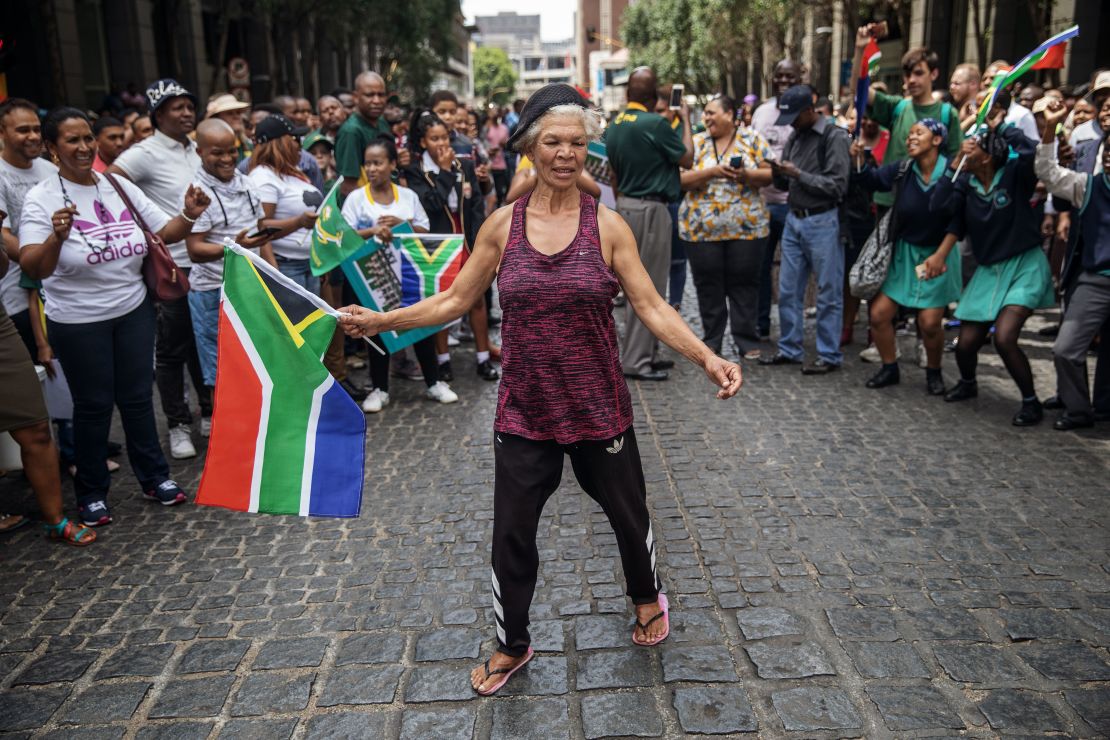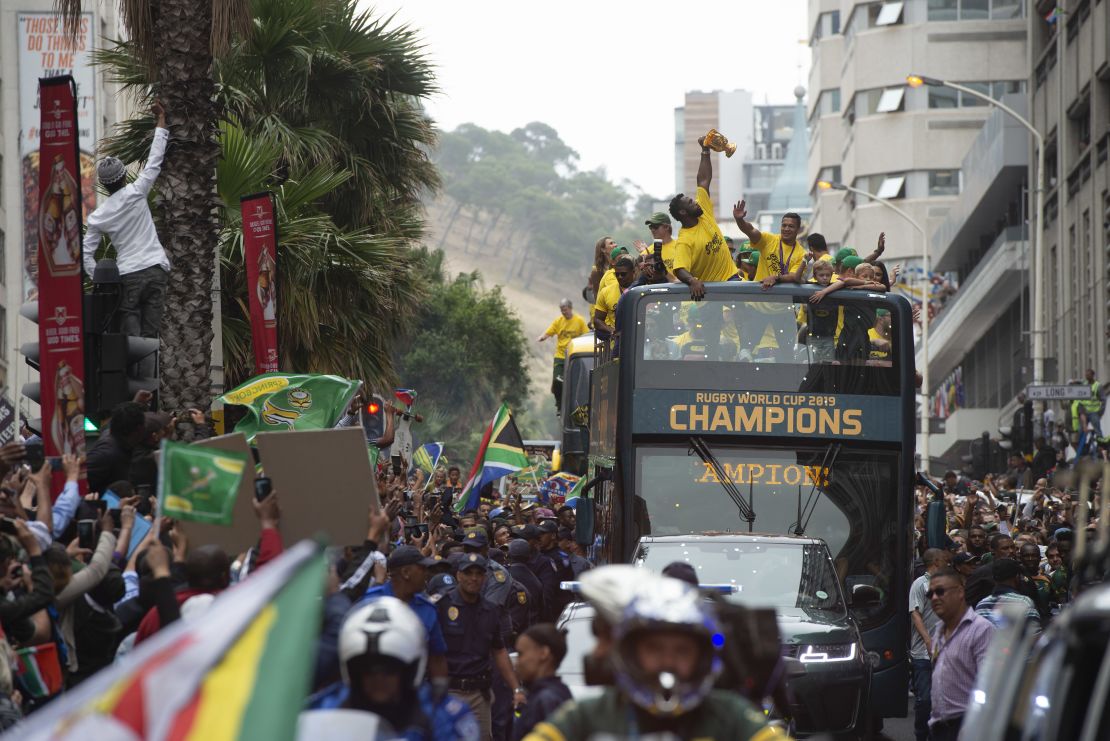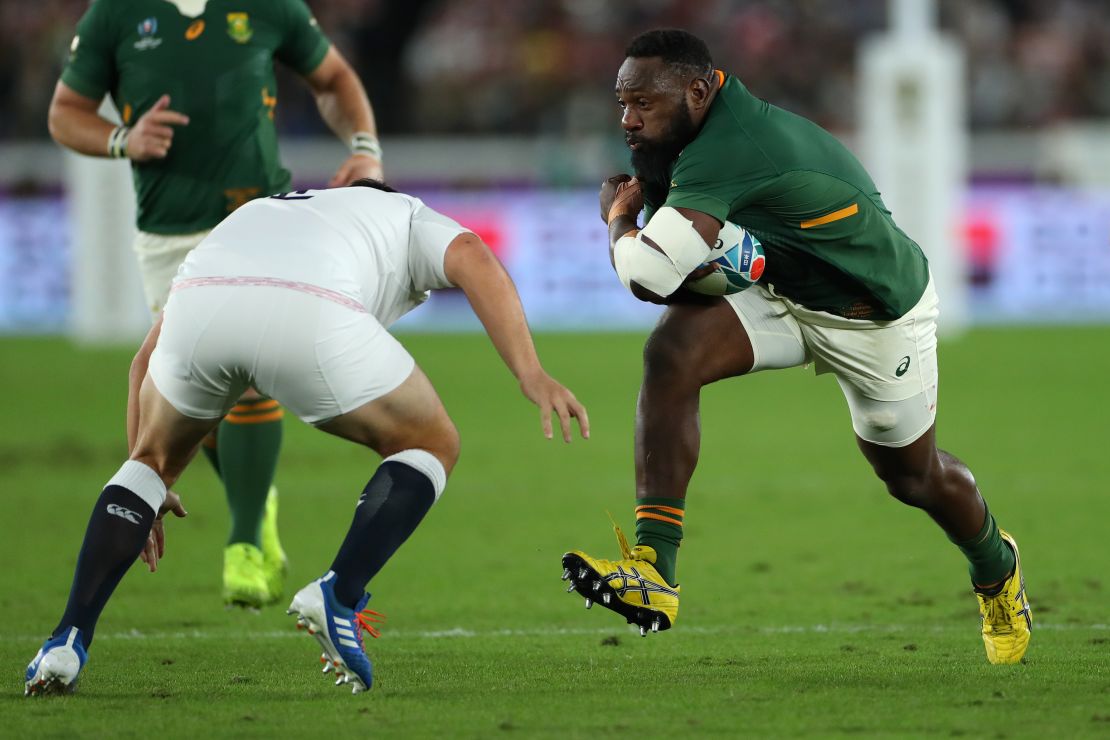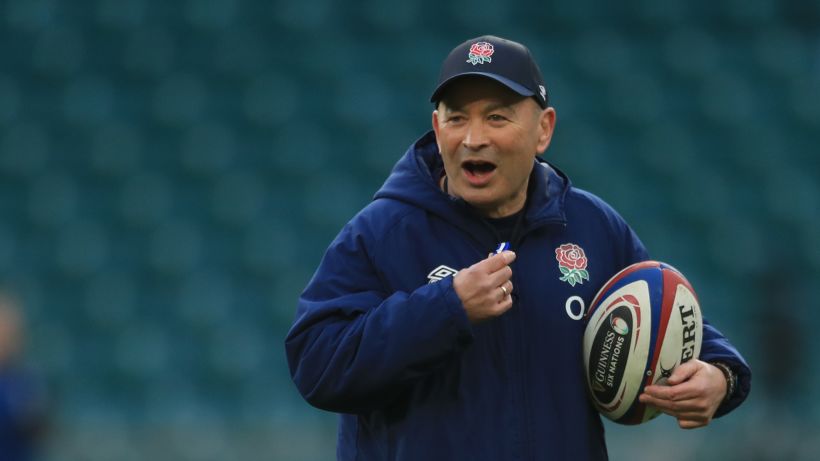Not everyone has been celebrating in South Africa. While thousands of people across the country partied with the Rugby World Cup-winning Springboks along a four-day, nationwide open-top bus parade, some vocal critics have refused to join in the fun.
The loudest dissenting voice is that of Mbuyiseni Ndlozi, the national spokesperson for the far left political party the Economic Freedom Fighters (EFF).
“We are unable to join in the fake celebration of the Springbok,” Ndlozi said in a fiery speech in South Africa’s Parliament on November 12. “The Springbok is a sign that cannot be whitewashed. It stands in parallel with ‘Die Stem’ [the national anthem during apartheid] and white supremacy in our society.”
READ: Why South Africa’s Rugby World Cup victory means so much more
READ: South Africa stuns England to win Rugby World Cup and inspire a nation

A divisive symbol
The Springbok, which has been the emblem of South African rugby since 1906, has a tumultuous history. Under the tyrannical National Party which created and maintained a racially segregated South Africa, the Springbok was closely associated with white domination and a hyper-masculine branch of Afrikaans culture.
In his quest to rebuild his fractured nation, former president Nelson Mandela used the Springbok to unite black and white South Africans. At the 1995 World Cup on home soil, he wore the green and gold jersey as he presented the Webb Ellis Cup to victorious captain Francois Pienaar.
But 25 years on from its first democratic elections, South Africa is still largely divided along racial lines. Though a black middle class is growing, change has come at a glacial pace. It is out of frustration as much as anything else that the EFF was formed in 2013.
“We are the generation that is refusing the emotional abuse that our parents went through,” Ndlozi said. “We are a generation that will say without a shadow of doubt, without any apology, that [the Springbok] must fall. It is a white supremacist sign that belongs in the dustbin of history.
“There is no racial unity until a rugby team rises that has a black majority, like the country we live in. Our message is that black people, you are on your own. Do not force black people to celebrate with people who humiliate them.”
READ: Ex-skipper Pienaar urges Springboks to ‘take World Cup to the people’

A different view
One of the black Springboks players disagrees. Tendai “Beast” Mtawariwa played the last of his 117 Test matches in the 32-12 World Cup final win over England and counters Ndlozi’s assertion that the sense of racial unity was false.
“He doesn’t speak for us because what we experienced when we got home was authentic,” Mtawariwa told CNN Sport. “What we saw was a united country. People of different races, different backgrounds, different dialects all came together to celebrate as one. I definitely don’t agree that it was false.”
Siya Kolisi is the first black player to captain the senior Springboks side and there are several prominent black players across the squad such as wingers Makazole Mapimpi and Ceslin Kolbe, who both scored tries in the final. But the team is still overrepresented by white players (69 percent) compared with the demographics of the country (whites represent less than 10 percent).
Mtawariwa is conscious not to sidestep the myriad struggles facing South Africa such as high unemployment, a lack of service delivery from government and rampant violence against women and foreign nationals. He knows that victory on the rugby field will not automatically house the homeless and feed the hungry. The country remains the most unequal in the world according to the World Bank and the addition of a golden trophy in the coffers of the South African Rugby Union will not change that.
READ: Meet the Gwijo Squad, the musical fan group confronting apartheid’s legacy
READ: How the Rugby World Cup has brought hope to one Japanese City

“But that doesn’t mean we can’t use this legacy and inspire hope to millions of people,” the hulking Mtawariwa said. “We’re a team made up of guys with different stories but we pulled together and achieved something epic.
“Our country needed this win. We’re in a difficult place at the moment, politically and socially, and things are tough for a lot of people. We can’t ignore that but it’s important to celebrate the good times. Anyone who was there during the victory parade will now that it was genuine.”
Mtawariwa, Mapimpi and Lukhanyo Am, who played a starring role at outside center for South Africa during the World Cup, are representing the Barbarians against Fiji in London Saturday.
Founded in 1884, the “Baa Baas”, as the team is affectionately known, is a wondering club encompassing players from around the world for exhibition matches. England’s coach Eddie Jones will lead the team at Twickenham before traveling to Sao Paulo to take on Brazil next Wednesday and then Wales in Cardiff on November 30.












